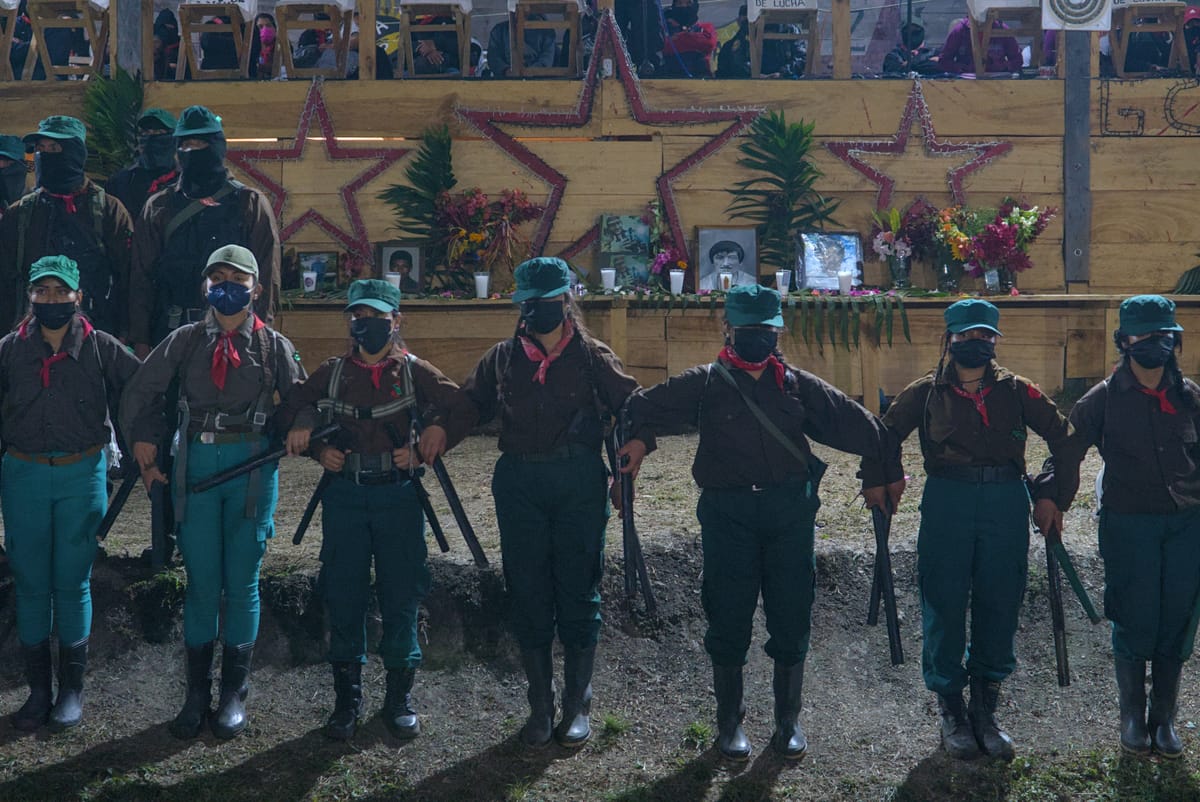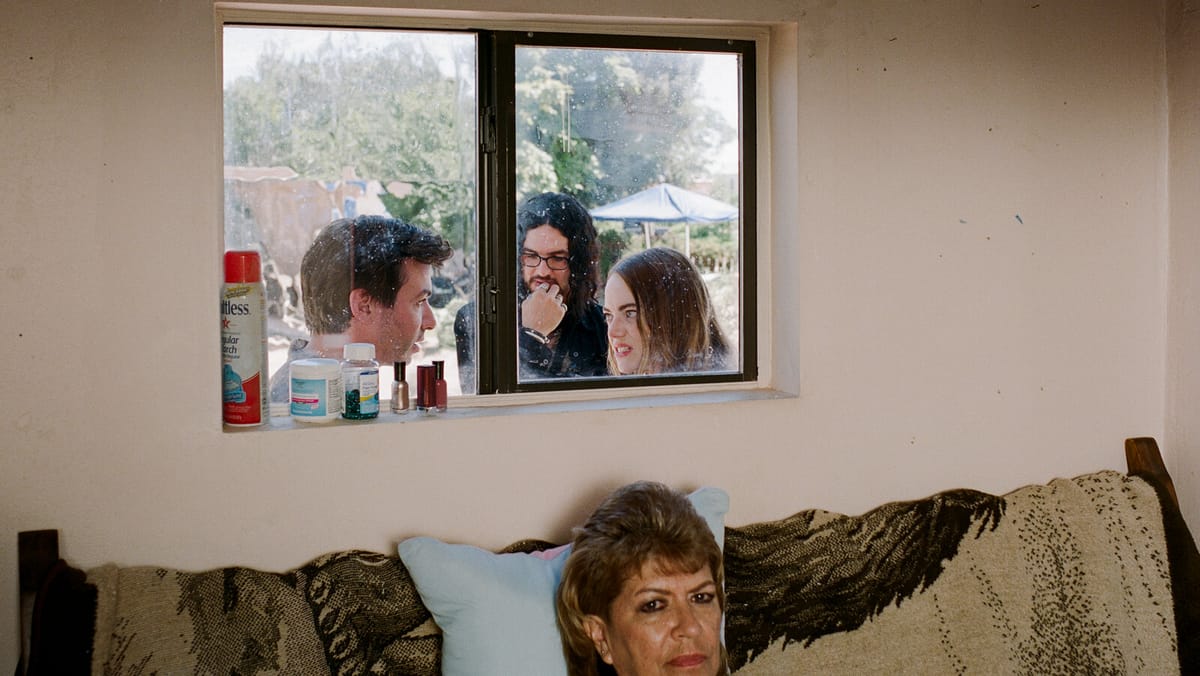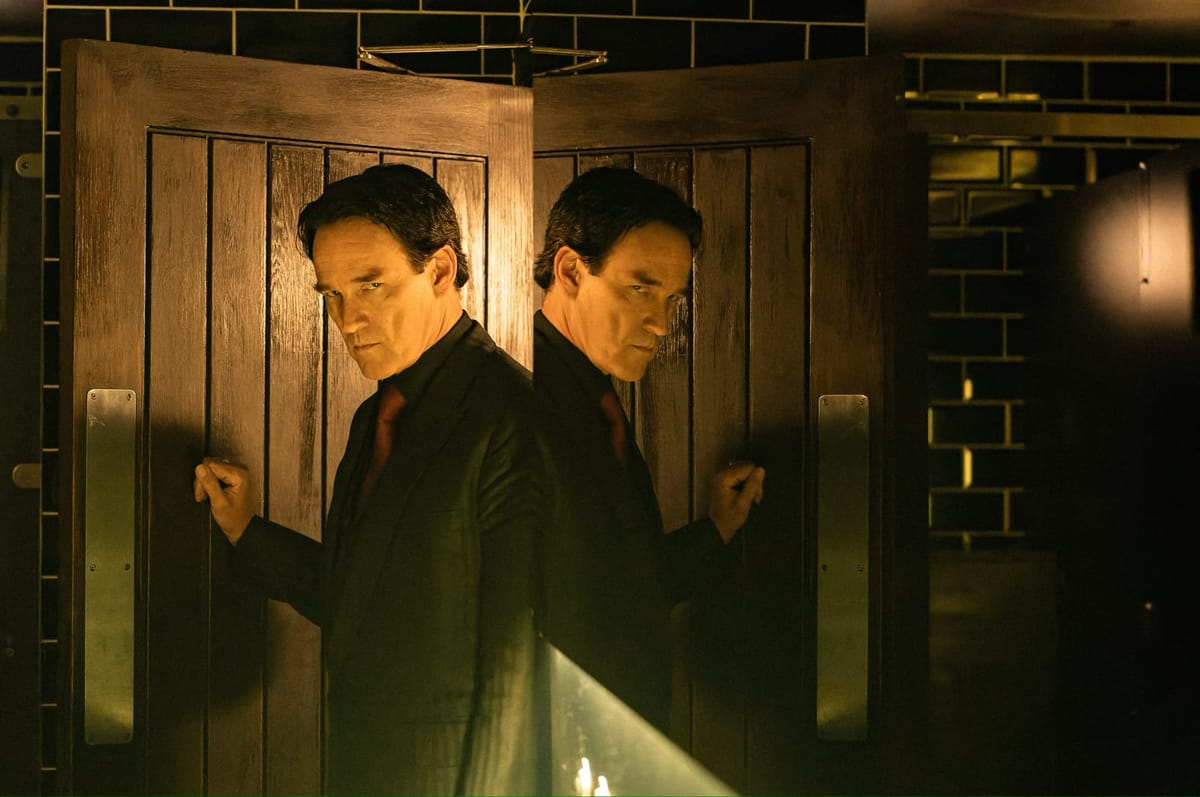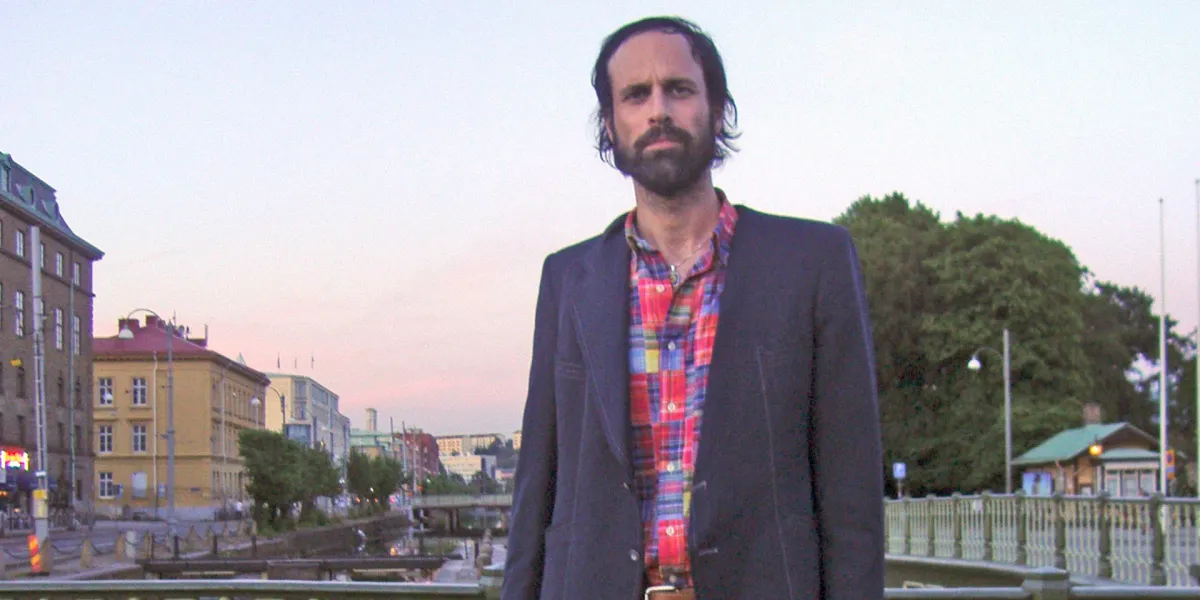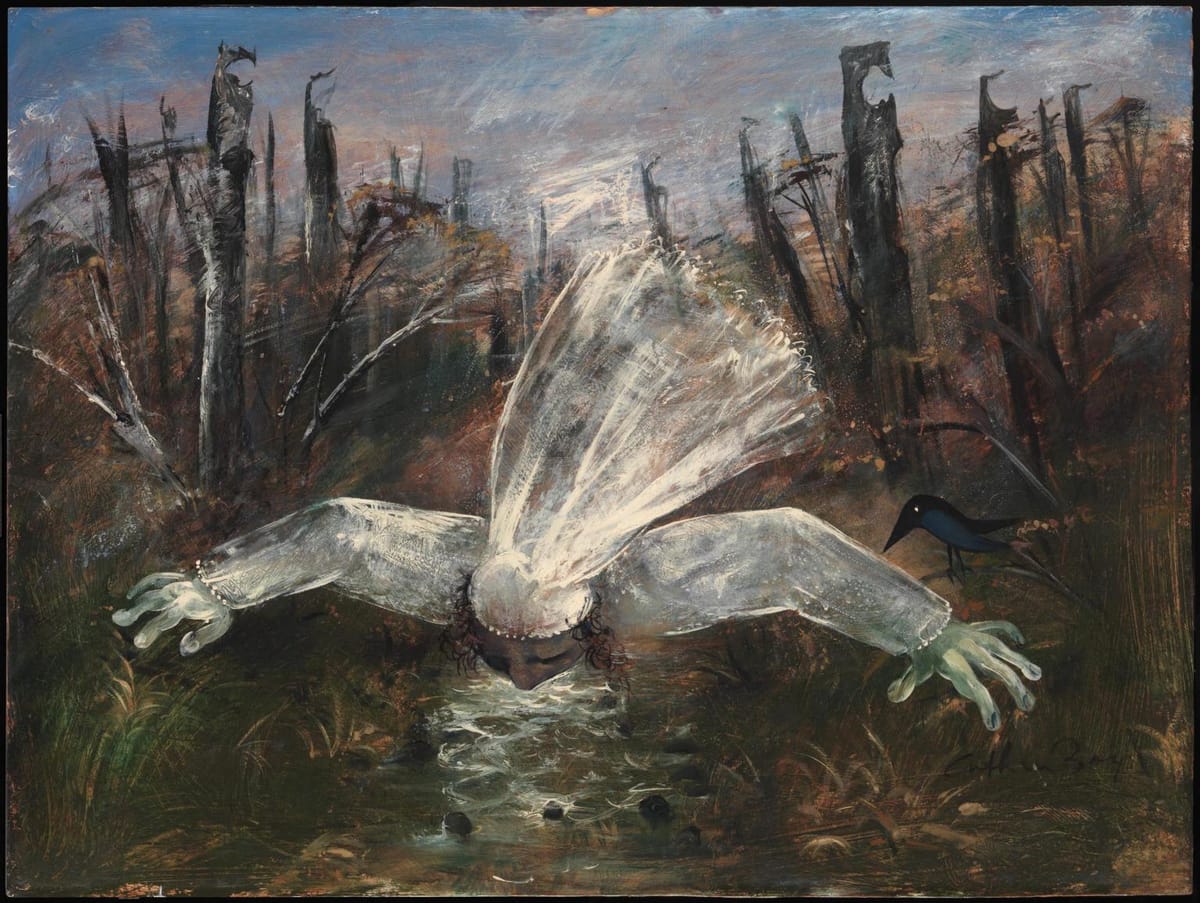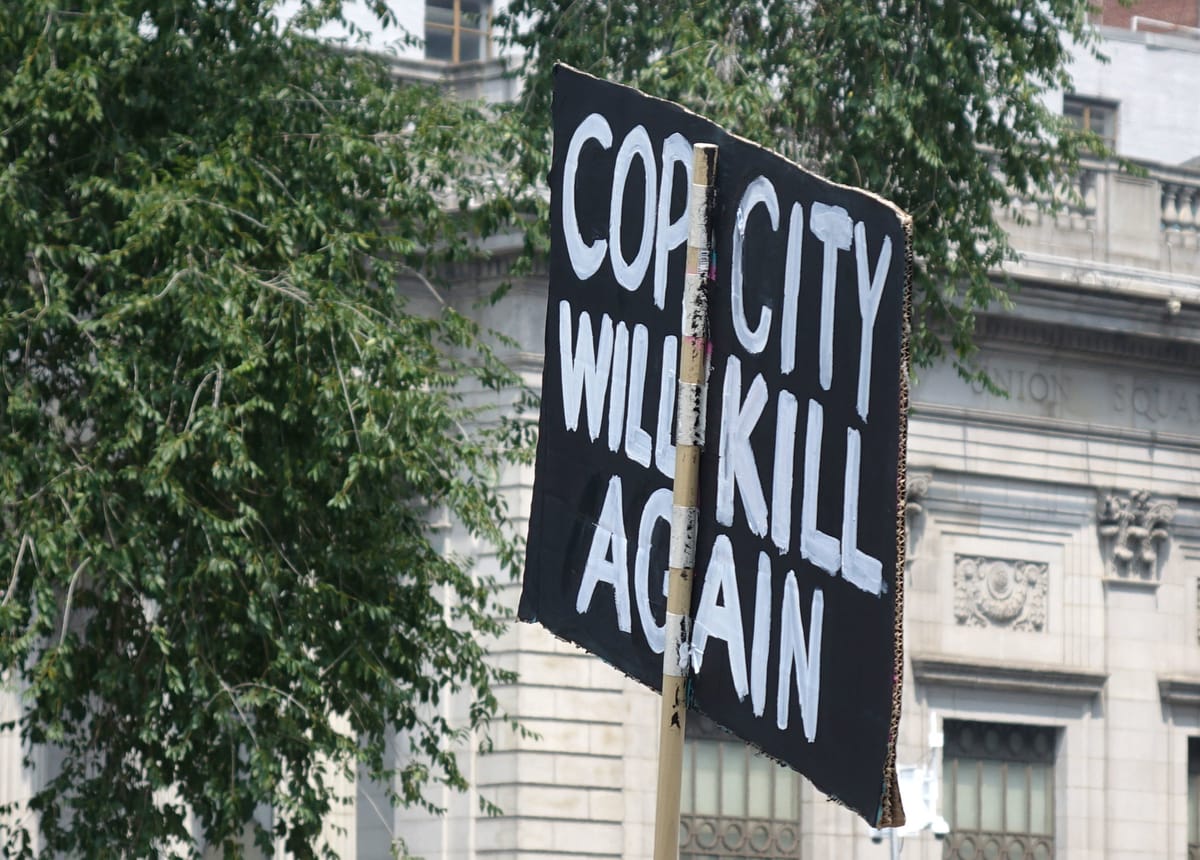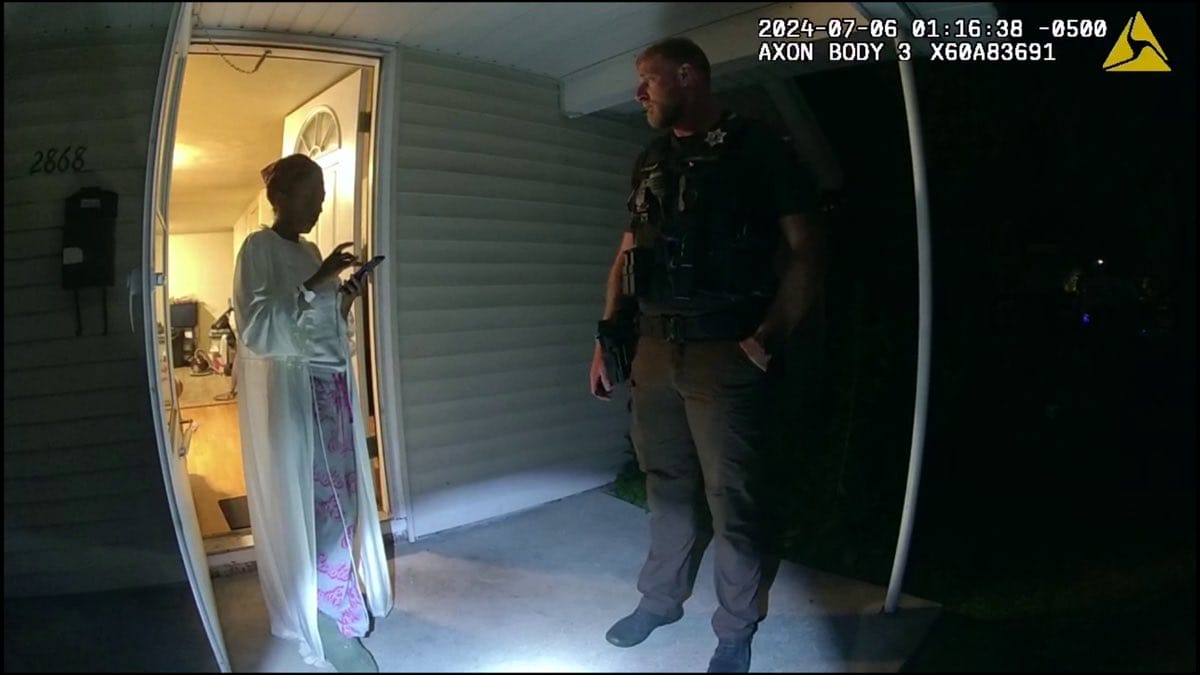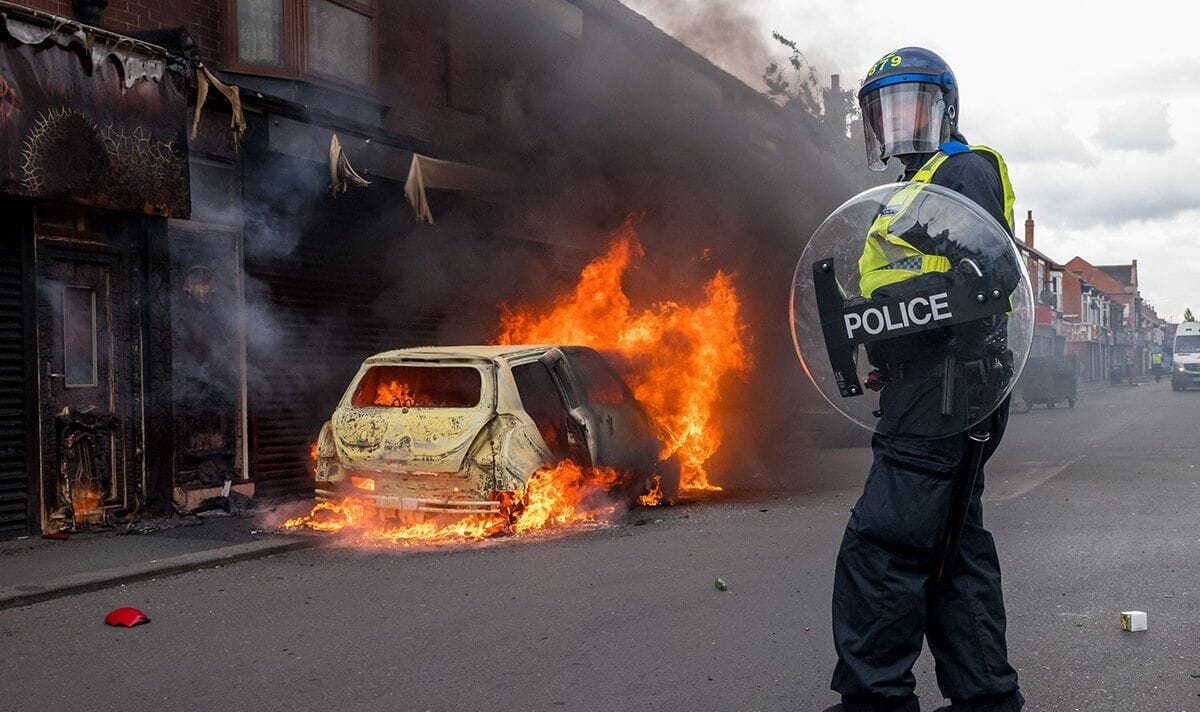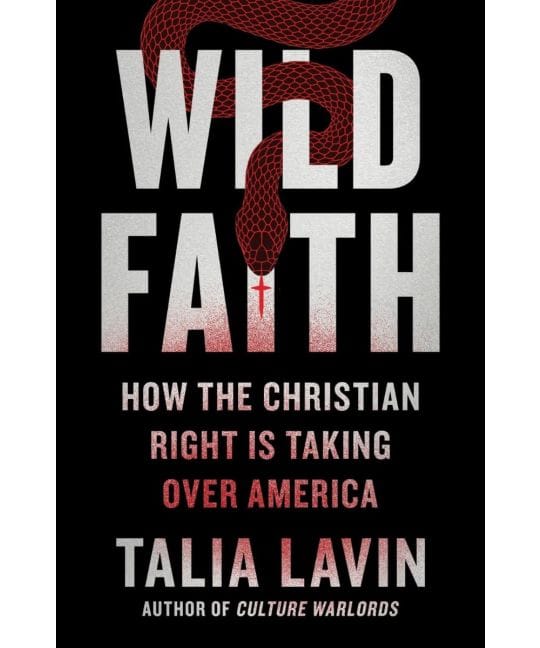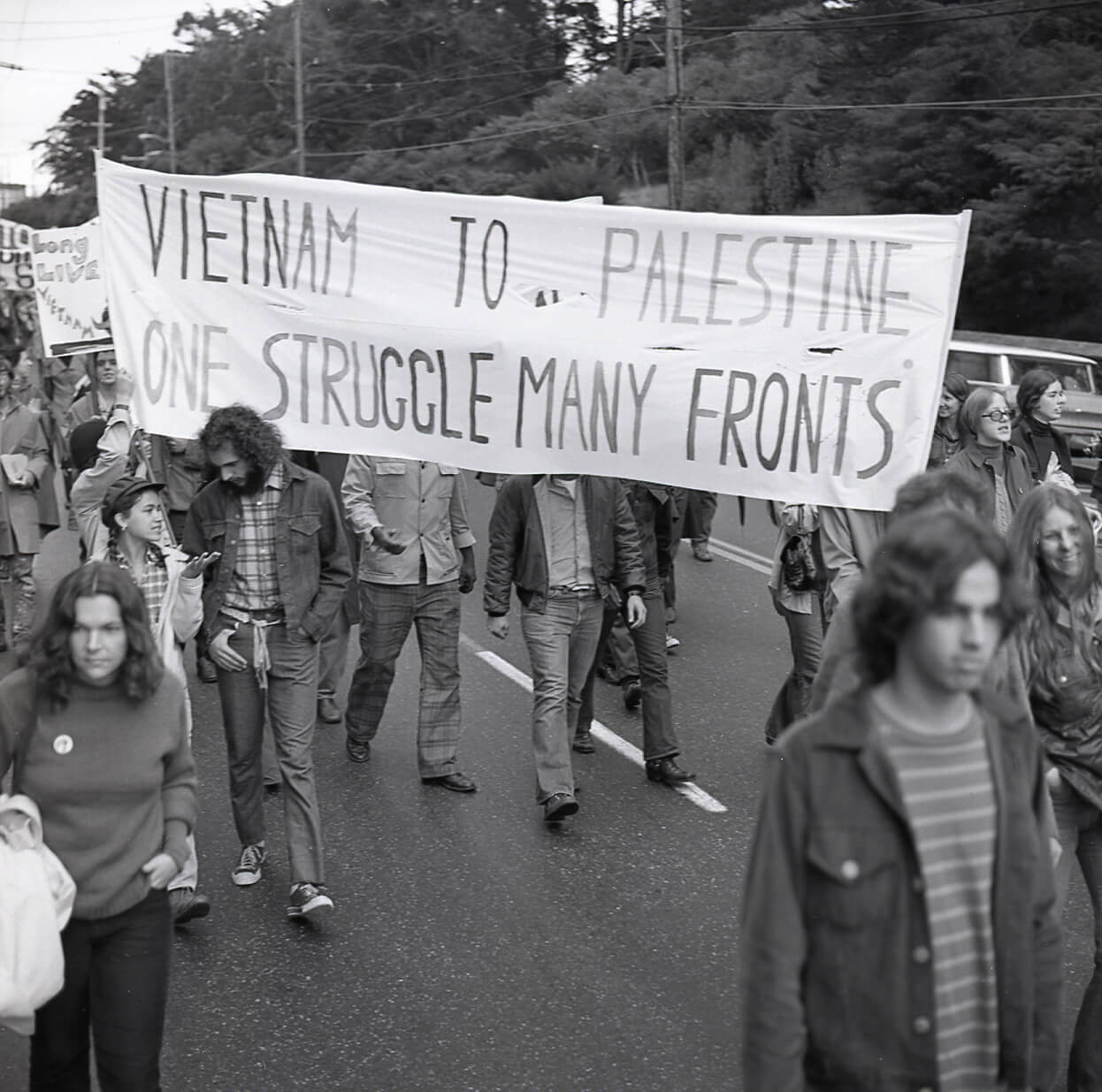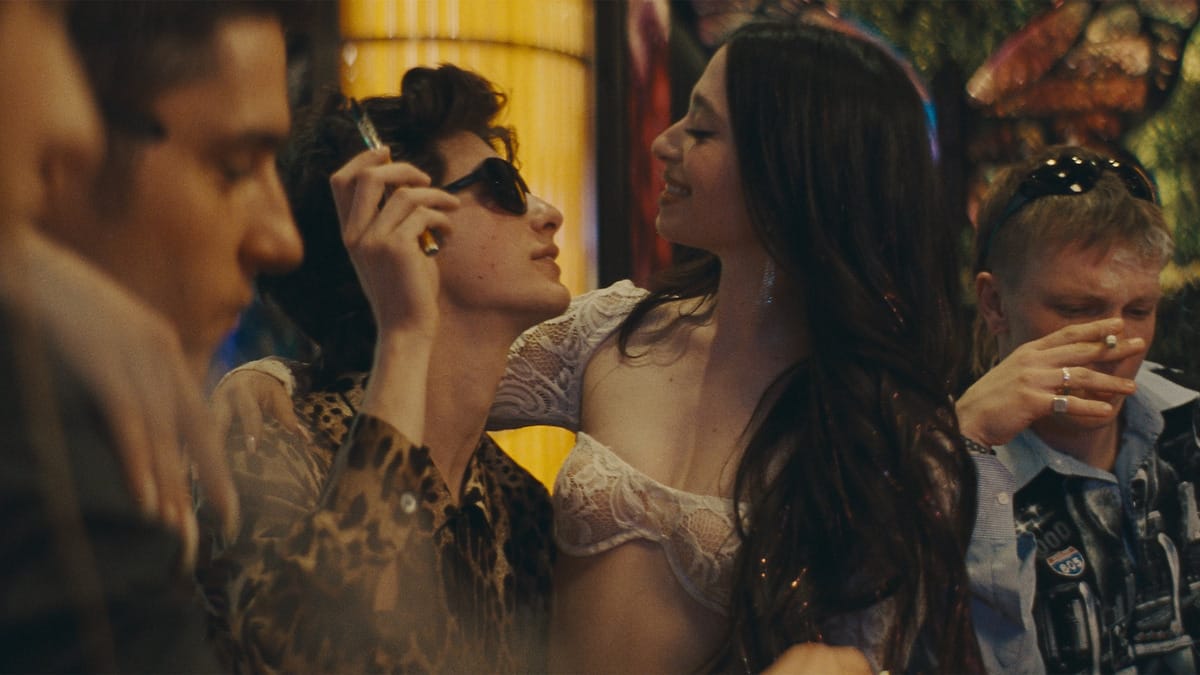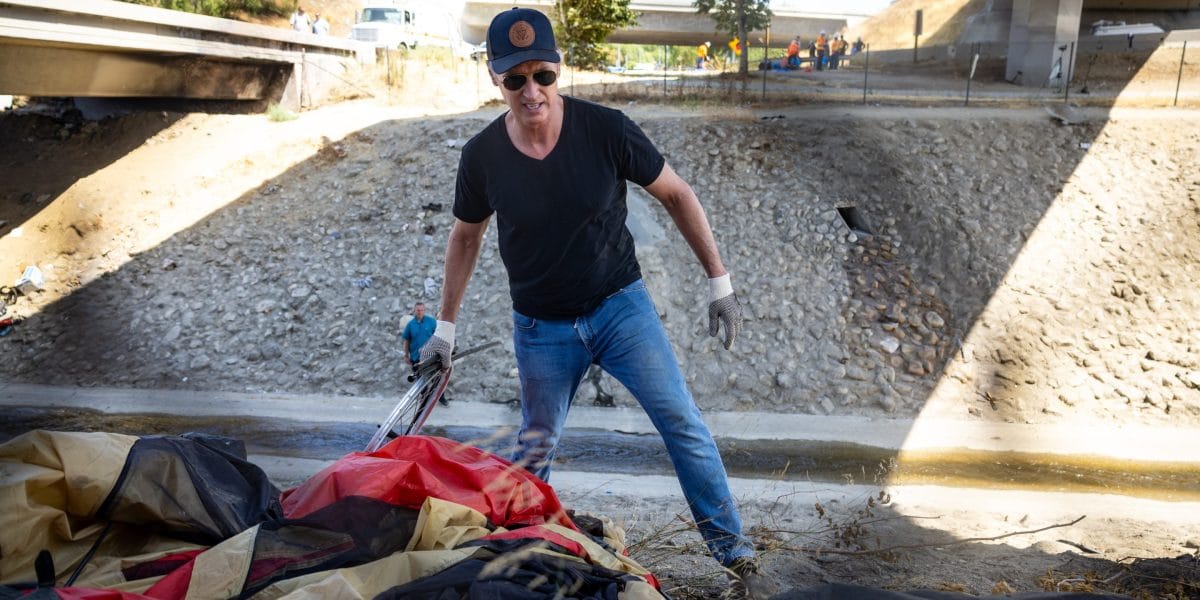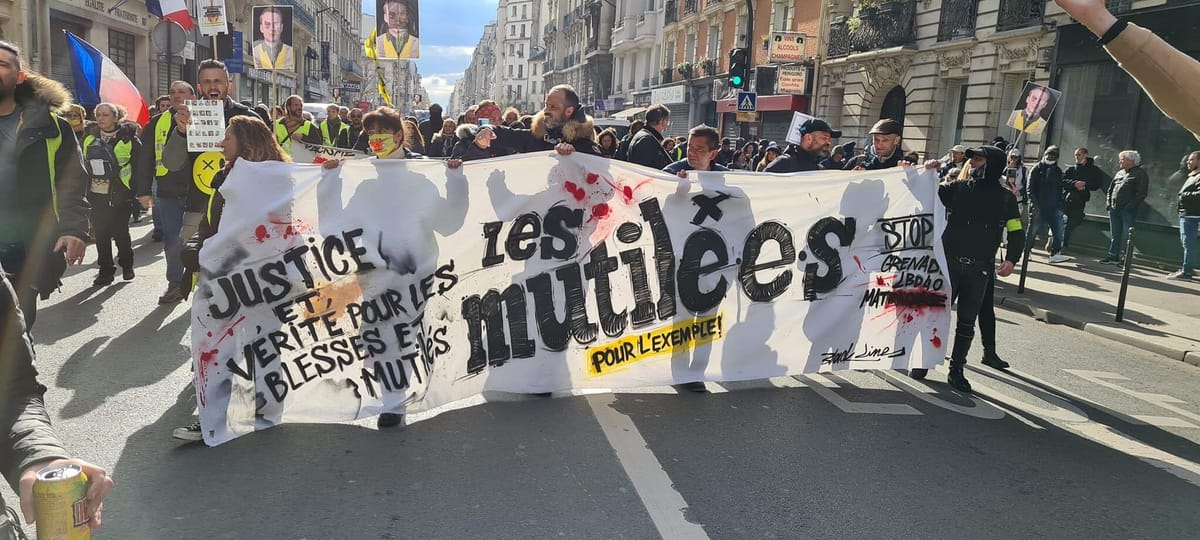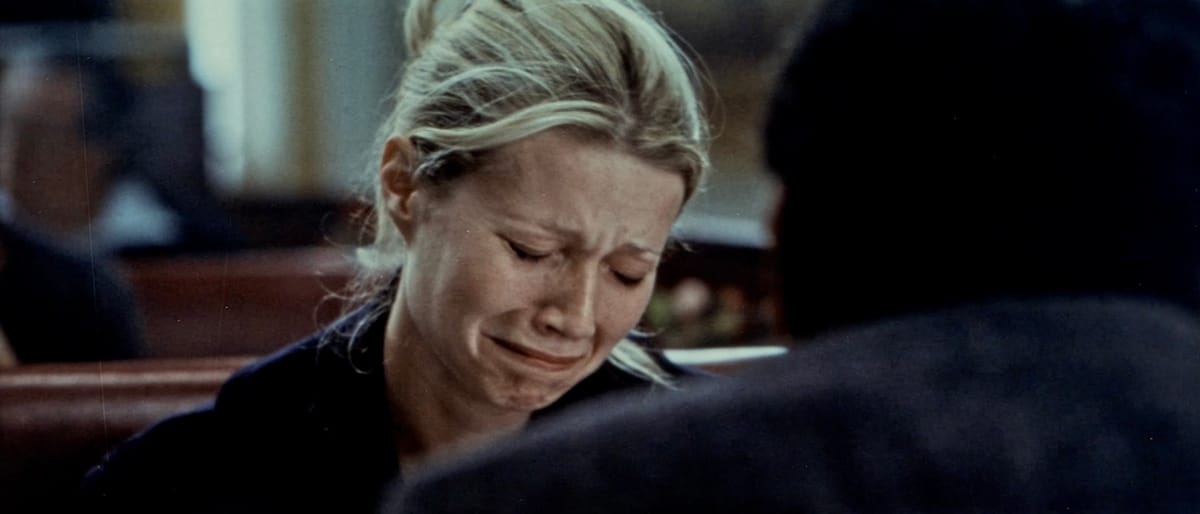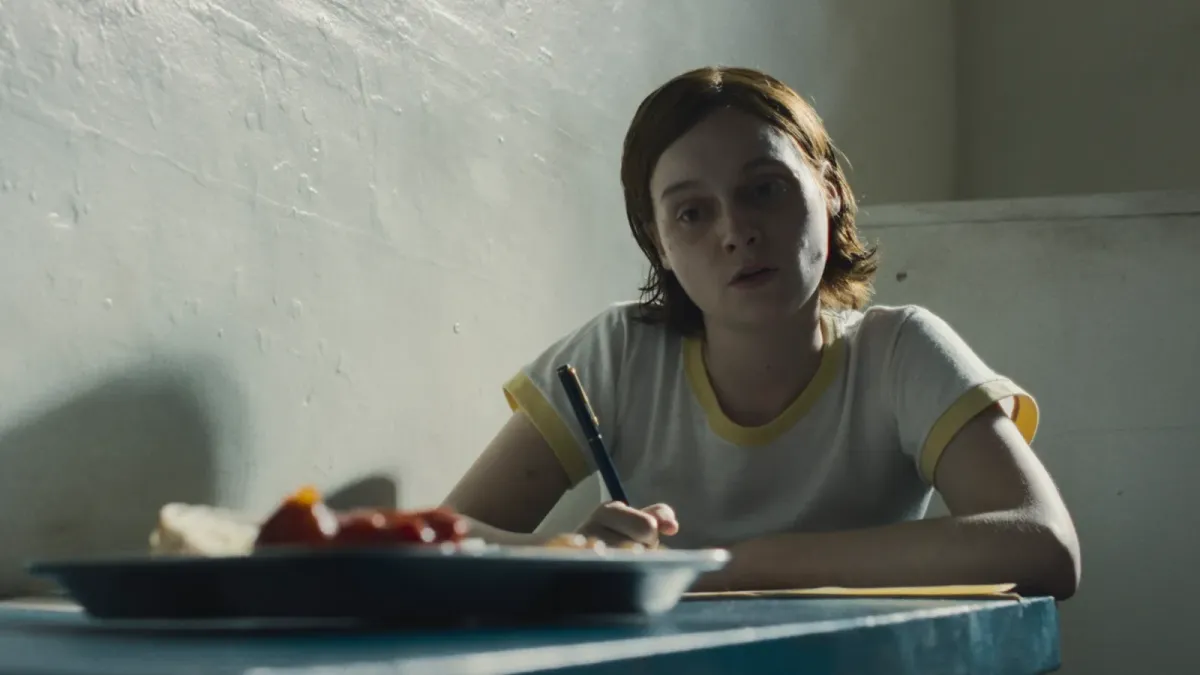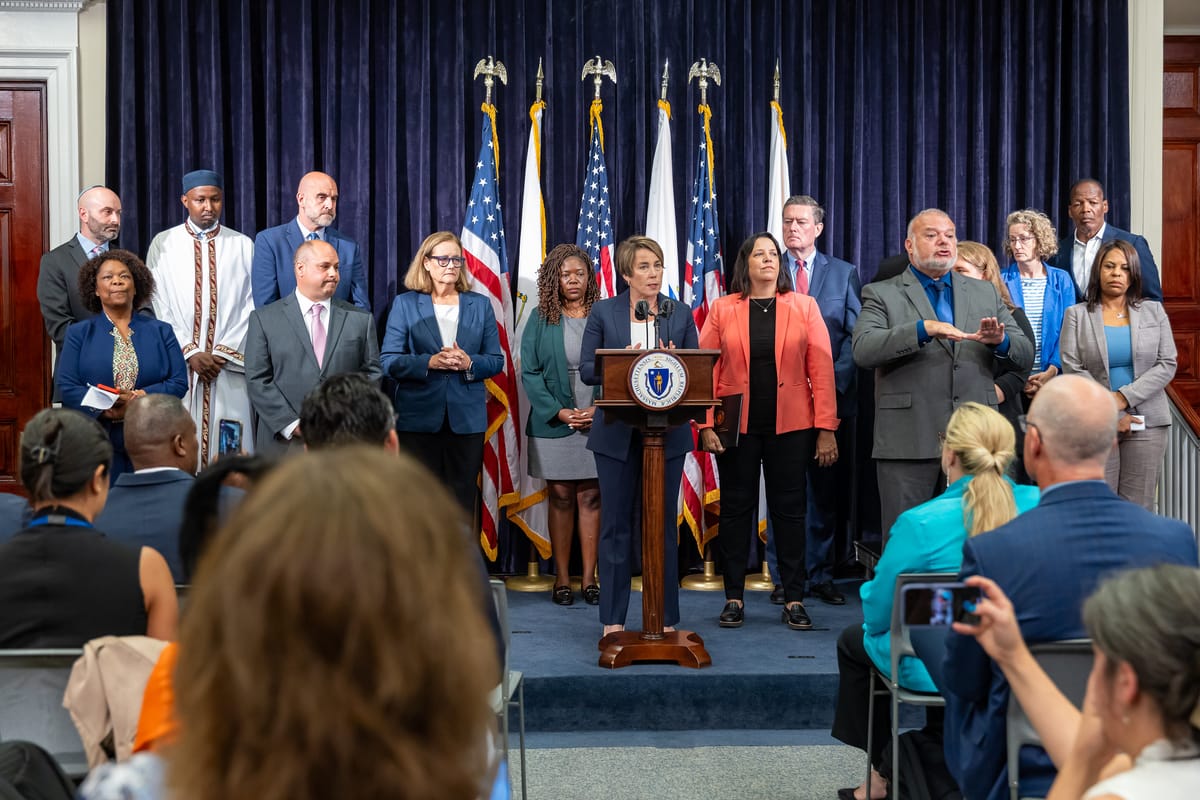The best of Hell World 2024
Man 2024 was a great year!

Man 2024 was a great year! No not any single thing that happened in the world, I mean all the writing and reporting from our talented lineup of Hell World contributors. Today I thought we'd take a look back at the best stuff written here over the past year by people who are not me. Maybe you missed a bunch of them?
A lot of these will be for paid subscribers only. It is an honor for me to be able to publish so many good writers, both well-established and newer in their career. I also take a lot of pride in paying decently and on time. If you've appreciated what you've read this year help me keep doing that with a subscription. Thanks so much for reading either way.
Alright let's get right to it. I gotta go I'm hold with the insurance call center lady to see if my care has been approved yet. The system is being a little slow today she said.
The year kicked off with one of my favorites so far in the top 5 songs series about the music of Jason Molina. As usual I was lucky to have a great group of guests including Erin Osmon, Jason Diamond, Erin Vanderhoof, Paul Blest, Jay Papandreas, Austin L. Ray, Kevin Koczwara, Lauren Lavín, Grace Robins-Somerville, Daniel Ralston, Brianna Bailey, Kayley Kravitz-Marotta, Nick Ciarelli, and Kyle Wall.
Robins-Somerville wrote:
Of course this is number one. Farewell Transmission is one of the greatest songs of all time, and the fact that it exists in this particular recorded form is nothing short of miraculous. The sheer instinct, synchronicity, and unspoken connection required from everyone in the room – none of them could have known when they’d walked into Electrical Audio that day that something serendipitous would happen that would enable them to record the album’s opening track in a single perfect take. If any song is deserving of such a mythic origin story, it’s this one. Over the course of Farewell Transmission the world starts and ends over a series of accidents – some man-made, some beyond mortal control. (All the more fitting for a song accidentally recorded in just one take). It’s as though Jason Molina himself foretold his own band’s miracle: "All the great set up hearts all at once start to beat."
Rowan Glass reported from Chiapas, Mexico for an event marking the 30th anniversary of the Zapatista uprising.
In the decades since their historic uprising, the Zapatistas and their unique model of autonomy have become a standard reference point for the international left, particularly among its libertarian socialist and anarchist strains. For many, Zapatista autonomy represents the possibility of dignified self-governance outside of an increasingly neoliberal and globalized world order.
Sean T. Collins wrote about the "surveillance cinema" of The Curse, The Zone of Interest, Skinamarink and more.
Surveillance cinema subjects its characters to observation so ostentatious we feel it like a physical presence, like an entity; the observed system reacts in similarly extreme fashion, with the shattering of reality itself.
He also wrote about vampires and class warfare and the Sexy Beast series.
There’s excitement in all this, from a viewing perspective. Violent, sexy, visually sumptuous shows about the sick elite are thick on the ground now, much to my delight. But even the ones in which the rich are punished for their crimes by cosmic justice haven’t directly put us in the shoes of the entity dealing out that justice. Teddy Bass is a monster we want to see unleashed, much as the results can be horrific to watch. He will kill, maim, and abuse anyone he needs to, but the only blood this vampire truly wants to drink is blue.
Patrick Kuklinski reported on one of the latest assaults on the rights and dignity of trans people in Florida.
After Trump’s election, many trans Americans struggled with the resulting wave of acceptance towards anti-trans actions. After cries about progressive media brainwashing children into trans acceptance and the insidious way that trans Americans were – gasp! – living their everyday lives in peace, the federal government not only allowed trans discrimination, they reveled in it. As the rates of trans-based hate crimes rose and internet chatrooms gossiped about imaginary predators masquerading as women, transgender Americans didn’t give up hope, they got angry.
Ryan Uytdewilligen wrote about the battle between social media companies and the Canadian government over sharing news online.
The federal government introduced The Online News Act (Bill C-18) back in 2022 because Prime Minister Trudeau felt wealthy companies like Meta and Google should compensate news publishers for their content. Not a bad idea (in theory), except for the fact social media giants called his bluff and completely shut down access to news stories of any kind on their platforms. Not only would they not agree to pony up extra dough, Meta doubled down and described it as a move to “curb the spread of disinformation and fake news.”
Another stellar lineup of writers and musicians came together for this appreciation of the music of David Berman including Allie Pape, Sarah Larson, Justin Sayles, Em Cassel, Jesse Locke, Keegan Bradford, Marianela D’Aprile, Rachel Yara, Harry Cheadle, Alex Fatato, Steve Kandell, Amanda Larson, Michael Metivier, Mike Young, Gion Davis, Sam Hockley-Smith, Donald Borenstein, Tyler Walicek, Oscar Rickett, Jesse Ackles and James Fritz.
Jesse Locke wrote:
The second verse of Suffering Jukebox is my favorite moment on the album because it taps into a kind of depression that initially feels specific to Berman, but ultimately applies to any artist wallowing in their own misery until it subsumes them. If you think of yourself as a “suffering jukebox,” perpetuating personal trauma for the sake of artistic expression, “all that mad misery must make it seem true to you.” There’s some trademark self-deprecating, tongue twisting wordplay when DCB hopscotches through “You got Tennessee tendencies, and chemical dependencies. You make the same old jokes and malaprops on cue.” Yet that use of the word “malaprops” is pretentious on purpose, potentially alienating the listener in the same way as the artists he’s critiquing. Such a sad machine.
Susan Zalkind shared an excerpt of her book The Waltham Murders: One Woman’s Pursuit to Expose the Truth Behind a Murder and a National Tragedy.
Hiba and her string of dead lovers sounded like something out of a campy noir. Yes, she and Brendan allegedly had a tumultuous relationship fueled by drugs and violence, but one could argue that Brendan also allegedly played a role in that dynamic. People made judgments and assumptions about Hiba’s behavior after the fact, but how is one supposed to react after opening the door of one’s home and finding three dead bodies inside? Who were they to judge her reactions? Yes, three of her past lovers died in a short period of time. Yes, after Hiba threw a knife in an argument with Rafi, he stopped visiting Brendan’s apartment when she was home. And, yes, Erik was trying to avoid her too. It seems unlikely that the triple murder would have occurred as it did, that all three men would have been at Brendan’s, or that Rafi’s apartment would have been robbed, if she had not left that weekend. But coincidences happen. Her trip to Miami was crucial to how the events unfurled. But that does not mean she intended any of this to occur as it did.
Corey Atad wrote about political expression – or the lack thereof – at Hollywood awards ceremonies and director Jonathan Glazer's statements at the Oscars connecting his film The Zone of Interest to the genocide in Gaza.
The Oscars are not world historical events, and movies are just movies, but the tepidness and downright hostility with which Hollywood often greets the truth is a depressing sight. It’s one thing when an artist like Christopher Nolan, for example, meets questions about his Best Picture-winning film’s relevance to the situation in Gaza by refusing to dictate the political terms of his work. The audience will take from Oppenheimer what it will, just as full-throated Israel supporters like Amy Schumer can call The Zone of Interest “the movie of the year” with nary a hint of self-reflection. Awards shows do not need to be a site for political proclamation. It’s all just an industry patting itself on the back after all. But matters political are not all treated equally. Anti-Putin sentiment was on full display, in both Chernov’s acceptance speech and a clip of Alexei Navalny that preceded the In Memoriam segment — hilariously, the Academy attributed the phrase “The only thing necessary for the triumph of evil is for good people to do nothing,” to the murdered Russian opposition leader. Host Jimmy Kimmel made a joke about Donald Trump belonging in jail to big laughs and applause. I agree, Putin is a monstrous villain, and Donald Trump does belong in jail, and also there must be an immediate ceasefire in Gaza and an end to the occupation. Apparently the latter is a bit too controversial for Hollywood though. Amid a world in crisis, the movie industry retreats to the easiest of platitudes.
Philip Eil shared an excerpt from his book Prescription for Pain: How a Once-Promising Doctor Became the Pill Mill Killer.
Back on Center Street, Portsmouth police monitored Volkman’s operation closely. According to a search warrant produced by the department, within days of the clinic opening, local officers sent in a patient wearing a wire who waited five hours before being called to see the doctor. During that visit, Volkman asked about previous injuries and surgeries, as well as the medications the patient had previously been prescribed. His physical exam consisted of checking the patient’s reflexes and asking them to bend down to touch their toes. This visit resulted in the doctor writing prescriptions for 180 fifteen-milligram oxycodone pills, 180 ten-milligram Lorcets, 120 Soma 350-milligrams, and 90 two-milligram Xanax tablets. The patient was given a note with the name, address, and phone number of East Main Street Pharmacy, in Columbus.
Kim Kelly interviewed Maha Shami of the D.C. hardcore band NØ MAN about her new record and being the child of Palestinian refugees.
I’m Palestinian and a woman so not surprisingly challenging oppression and fighting for our right to exist are repeating themes. Recently I’ve been more mindful of the importance of radical love, both in my personal relationships at the community level. Meaning, how do we love one another fully without boundaries or strings attached? Conditional treatment doesn’t really show up until you’ve poked the bear and you’re confronting the status quo. It happens to women in punk protecting their scenes and calling out abusers. It’s happening now when folks preach equality and remain silently complicit during a genocide. Glitter and Spit is about not letting someone dehumanize you by distorting your reality to fit their fantasy.
This excerpt from Alexandra West's book Gore-Geous: Personal Essays on Beauty and Horror was about one of my favorite films ever: Under the Skin.
Under the Skin is a film that feels incredibly original, but it contains visions that are hauntingly familiar. We marvel at how the film twists and turns throughout The Female’s journey at first feeling for her victims and then for her. We come to understand that despite how futuristic the film may posit itself as, it’s telling a story we’re all familiar with—a woman being murdered by a man when he is denied what he wants. The final moments of the film with the smoke billowing up amongst the trees is reminiscent of the witch burnings in Europe. The tale of an interloper with villainous intent preying on an unsuspecting population is a story that has been told time and again both in fiction and in propaganda. A beautiful woman with malicious intent, as we have already discussed, is nothing new.
Joey Scott reported on his two year effort to get the San Bernardino County Sheriff's Department to release footage of themselves killing a 15-year-old girl named Savannah Graziano. The girl had been kidnapped by her father and was shot by police as she was walking toward them to "safety."
“Oh no,” the helicopter pilot says next in the aerial video as the girl instantly becomes a blurred image edited in over her body by the police. The blurring is meant to obstruct viewers from the sight of a teenage girl being shot by the very people meant to rescue her on the video, but serves as a metaphor for the entire way they’ve handled this case.
Soon after deputies attempted to administer aid as she lay on the freeway shoulder. She would later die at the hospital.
It’s still at this point unclear how many times she was shot, the names of the deputies who shot her, or if the department has internally punished anyone for the handling of the shooting. Neither the department nor the California Attorney General have offered any follow-up on the shooting since 2022.
Scott was also on hand at UCLA as police and Zionist agitators attacked an anti-genocide encampment.
The sound of babies crying blared across the quad from portable speakers. The crying was interspersed between air raid sirens and a song playing on repeat celebrating the destruction of Palestine. Zionist counter-protesters taunted and shouted at the encampment from the other side of metal barricades.
Suddenly the counter-protesters attacked. Metal barricades were turned into projectiles as they launched them into the encampment. Those without a metal barricade or weapon in their hand ran in to rip down Palestinian flags and the plywood barricades that had been erected in front of the encampment. One of them screamed about doing “another Nakba.” The security teams paid by the university to keep the two groups separated fled into a neighboring building and locked themselves inside.
Erik Sofge wrote about the divisive directing career of the often brilliant Alex Garland and his punishing and kinetic film Civil War.
Civil War’s departures from the standard mode are more subtle, and easier to interpret as mistakes or a loss of nerve. The movie’s president is clearly a fascist—we’re told his government shoots journalists on sight. But Civil War doesn’t spend a single frame championing the virtues of journalism. Like the rebels pushing toward D.C., its subjects just want to be there when it happens. In the end, their presence arguably creates more bloodshed, not less, and does nothing to make sense of the chaos. They get what they want, though: to bear witness to horrors.
But those are story elements, and focusing on them misses what’s made Garland distinct as a director. Civil War isn’t a vessel for its story, which is so spare it could be relayed in a few sentences. It isn’t withholding worldbuilding or characterization details by accident. Those details do not exist in the movie. There’s no lore to unpack on Reddit, no narrative puzzle to be solved. There’s no explanation, no solution, and no answers.
Tynan Stewart reported on the Stop Cop City movement in Dallas.
While the facility has been in the works since at least 2020, opposition has ramped up in recent weeks. Organizers with Stop Cop City Dallas, a coalition of local left-wing groups, have been knocking doors and handing out flyers at polling places, asking voters to reject an upcoming bond project that would funnel $50 million in public funds to the police academy. The election is May 4 but early voting is underway.
The Dallas Police Department already has a training facility, but arguments for why they need a new one closely echo those made by Atlanta cops: Dallas’s current facility is old. A replacement would, in the words of Dallas police Chief Eddie Garcia, “boost recruiting, retention and morale.” City officials also hope the new academy will provide "revenue generating opportunities.”
Annie Howard wrote about a "spate of incredibly diverse and incredibly gay museum and gallery shows," including work by Edie Fake, Nicole Eisenman and Paul Mpagi Sepuya, and how necessary art is for us to be able to imagine a better future.
It’s hard not to find artistic engagement hopelessly escapist and decadent in a time when we could just as easily be on the barricades. Yet I’m reminded of a quote from David Wojnarowicz that I recently encountered in Fire in the Belly, an excellent biography of the artist by Cynthia Carr. Talking to his friend Zoe Leonard about a series of photos she’d done of clouds, and her conflicted feelings “about the intensity of the activist work and the harshness of the reality of the crisis,” David told her: “Zoe, these are so beautiful, and that’s what we’re fighting for. We’re being angry and complaining because we have to, but where we want to go is back to beauty. If you let go of that, we don’t have anywhere to go.”
Trevor Shelley de Brauw reflected on the too short life and unbelievably prolific work of Steve Albini, seeing Shellac, recording in his studio, and trying to live an ethical punk life.
Though he often publicly claimed not to have an aesthetic as a recording engineer (he famously compared himself to tradesman, like a plumber or electrician), there is inarguably a distinct sound to his work that carries this same spirit – eschewing meticulously constructed productions in favor of capturing the sound of a band playing in a room right in front of you, warts and all. People tend to use words like “raw” or “confrontational” when they’re discussing Albini’s recording work, but those aren’t quite right. He was much less an instigator than someone who commanded engagement; his work asks you to be present, aware, contemplative. His recordings are not a construction so much as they are a moment in time captured on magnetic tape.
In this one Rax King took a look at the absurdity of costly weddings.
These etiquette arguments always seem to center on what some other person thinks of your wedding. They take it as a given that the pressure to throw a grand one is immovable and inarguable. Of course, the pressure does exist — some random woman writing for Vogue didn’t invent the idea of spending $1,000 for two hours of cello music. The Perfect Wedding is a demon who targets women’s insecurity, their instinct to steal glances around the room at what other women are doing. He must be exorcized at all costs. The idea shouldn’t be to jerry-rig as Perfect of a Wedding as you can on your piece-of-shit $10,000 budget, to hire the day-of coordinator at the expense of serving your guests a real meal (which González really did do, and which offends me to my core). The idea should be to push past the pressure to the other side, where you’ll find the ceremony you really want to have. With everyone else’s expectations sanded off, underneath the layers of rules and tropes and fancy venues, what are you left with? What can you do, and what do you want to do?
She also wrote this funny and moving piece about sobriety and how you don't necessarily have to stop being a scumbag just because you stopped drinking.
Life with a drinking problem had been easy in that I wanted very little. The appetite itself may have been big but, directed towards a single end, it felt manageable and logical. I pursued only men who went well with bourbon and coke. Professional achievements felt good enough, but celebrating them with a blackout was what I really looked forward to. Alcohol subsumed every interest I might have had outside of it, all of which only got in its way. I’d become a rudimentary creature, chasing only one instinct and jettisoning whatever didn’t help me catch it. In sobriety, my want has swelled to fit the much-bigger me it’s contained in. I don’t want nothing anymore, I want everything.
Jim Ruland went to see Dead & Company at The Sphere and Devo at Punk Rock Bowling on back to back nights in Las Vegas.
When I was in the seventh grade, I woke up before dawn each morning to unbundle the stack of Washington Posts waiting for me on the sidewalk, load up my hand cart, and walk around the leafy streets of Falls Church, Virginia delivering the news. The darkened streets were like a funhouse maze of childhood fears: collapsing fences and creaky gates, icy roads and freezing puddles, vicious dogs and lecherous creeps.
My accompaniment on these suburban sorties of terror was Devo. Specifically a store-bought tape of Q: Are We Not Men? A: We are Devo! that I listened to on a Walkman knock-off that I bought at Dart Drug. That fucker devoured batteries the way a slot machine eats coins.
Patrick Kuklinski returned to write about the “Don’t Say Climate Change” bill in Florida.
Something strange is happening and we all know what it is. Well, a lot of us anyway. It remains mind-boggling to me that so many people my parents’ age or older don’t seem to share my generation’s sense of alarm about climate change. The fact of it, one with overwhelming evidence, should be accepted in the same way that we all agree that dogs bark, cats meow, the sky is blue, and Ron DeSantis doesn’t care about you or your family.
And yet over the course of my life climate change has grown more and more attached and entrenched in political identity. That choosing of sides threatens not only all American citizens, even the ones who think their wealth might protect them, but people all over the world who will have to deal with the consequences of our ongoing war on the planet.
Micah Herskind caught us up on the latest developments in the Stop Cop City movement in Atlanta.
Despite the evidentiary and procedural weaknesses of the case, the prosecution has already accomplished one of the state’s key goals by sapping and redirecting energy from many in the movement. As many organizers said from the beginning, the goal of the sprawling RICO indictment is not necessarily to get convictions—it’s to attack a movement.
Another good one from Corey Atad. This time an essay about The Bear that also touches on The Prisoner, Breaking Bad, Twin Peaks, and the medium of television as an art form.
Where season 3 of The Bear has gone wrong for many is related to a critique I’ve had from the start: it’s too in love with its own filmmaking. In the prestige era, where TV shows look and sound ever more like cinema—effectively killing the adult drama at the multiplex—filmmaking has become an end to itself. The worst show I watched last year (not necessarily the worst show on TV, I simply haven’t watched enough) was A Murder at the End of the World, Brit Marling and Zac Batmanglij’s mystery series follow-up to The OA. It’s a piss-poor mystery first and foremost, but laid thick with capital C cinema, which mostly means a lot of slow shots of not very much that go on for minutes at a time. As though being slow would make it good. The Bear takes the opposite approach formally. A lot happens, fast and often loudly. In fact, its first season, when you break it down, basically follows the structures of a workplace comedy, right down to a silly sequence in which Carmy accidentally spikes the drinks at a kids birthday party with Xanax, putting them all to sleep. You might sooner expect such shenanigans in an episode of Parks and Recreation.
Kim Kelly returned to write about two contrasting speeches by labor leaders in the run up to the election: UAW President Shawn Fain at Netroots Nation and Teamsters President Sean O’Brien at the Republican National Convention.
That is the most basic point here. It was bad for Sean O’Brien to speak at the RNC because the Rs in question are anti-worker, anti-labor, and anti-human. They are enemies of labor and of the working class. He may have made some grimy new buddies, but they will not be there for him when it comes time to save the Teamsters’ pensions again, or to pass the PRO Act, or to protect the immigrant workers who make up a hefty chunk of his own membership. His old friends in labor will, and if by some miracle the Democrats manage not to fall completely ass over tits in this election, so will at least some of them.
Justin Glawe reported from Springfield, Illinois after the release of bodycam footage showed police murdering a woman named Sonya Massey in cold blood in her own home.
Throughout all this madness over the last decade I have seen, read about, and reported on a lot of police killings, but this one is the worst, the dumbest, the most heartless, the most shocking and callous I’ve ever seen. Grayson — over six feet, 200-something pounds — was on the other side of a counter from a woman who weighed about half what he does.
Rowan Glass came back to report on the 12th anniversary of the Rojava Revolution in northeast Syria.
The geopolitical maneuvering of international actors like the US, Turkey, and Russia has left Rojava in a tenuous position. Despite these external challenges, over the past 12 years the people of Rojava have constructed a system of direct democracy based on the precepts of democratic confederalism. The principles of this model are enumerated in the Social Contract of the AANES, which was most recently modified in December 2023. But how does this system, so radical on paper, work in practice?
Simon Childs filed this dispatch from the UK about the spate of racist and xenophobic riots that cropped up over the summer.
It would be hard to overstate how violent these groups have become. One with 13,000 members has been sharing a list of 39 immigration-related charities, advice clinics and lawyers as potential targets all while its participants call for the home secretary to be hanged.
This new form of far-right organizing hasn’t sprung up overnight, but it has gone into overdrive in recent months. Until recently, Robinson was a busted flush. He was banned from Twitter for breaking its rules on hateful content and had become basically irrelevant. But in November of last year the platform’s new owner Elon Musk reinstated his account. Musk lately has been signal boosting Robinson’s content and saying that a race war in the UK is “inevitable.”
Musk has re-invigorated the far-right Twittersphere. Meanwhile the right-wing of British politics has careened even further right, and its media has become even more shrill and apocalyptic in its tone.
Another great one in the top 5 songs series. This time Jack Hamilton, Eric Renner Brown, J. Bennett, Alan Siegel, Stevie Caldwell, Julia Gumm, Jim Ruland, Chris DeVille, David Klion, Mike Sparks, David Farrier, Eoin Higgins, A.J. Daulerio, and Jason Gruber remembered the life and music of Chris Cornell.
Bennett wrote:
On the one hand, The Day I Tried to Live is about the introvert’s daily struggle to get out of the house. On the other, the song critiques society’s rejection of those who choose to isolate from the herd. Of course, it’s perfectly acceptable if society decides to isolate the individual. To paraphrase the legendary new jack swinger and coke dancer Bobby Brown, it’s their prerogative. But if the individual has the audacity to isolate him- or herself from society? Well, society tends to take major offense. Hence the demonization of modern iconoclasts like Colin Kaepernick, Wesley Snipes and Sinead O’Connor.
And yet, Cornell offers hope in the face of never-ending pressure to conform: “One more time around might do it. One more time around might make it.” Unfortunately, he couldn’t sustain this kind of optimism. Few of us can.
In this one Carmen Aiken wrote about protesting the DNC in Chicago, working at Trader Joe's during peak Covid, living in Minneapolis in the summer of 2020, January 6th, and what saving democracy is supposed to mean.
I felt the absence of unhoused people on the sidewalks downtown. I saw none of the familiar migrant women and their children chanting “chicles dulces por favor.”
My mother volunteers at a ministry for migrants. Her Spanish is very good. But she never has answers for them when they ask about what America actually is. When they tell her how they did not think that it all worked this way. The same questions we all end up asking when we run out of our own luck. Luck that democracy has nothing to do with or no solution for anyway.
We are so much closer to each other’s cruel lives than we think.
Oasis is back baby. Alex Suskind, Ben Firke, John Cullen, Steven Sladkowski, Steve Marsh, Paul Savage, Anthony Kim, Patrick Hosken, Alex Zaragoza, Rasha Al Aqeedi, Annie Zaleski, Evan Greer, Tyler Littwin, Paul Driscoll,Michael Christopher and Zach Schonfeld picked their favorites by the band.
Rasha Al Aqeedi wrote:
I was an adolescent living in mid-90s Iraq, and we did not have a CD player under the severe economic sanctions. I used to make mixtapes by recording music from international radio stations like Monte Carlo and BBC World. One of Iraq’s two national TV stations would air the UK’s Top 50 songs. That was how I first knew Oasis. My knowledge of rock included Bon Jovi, Def Leppard, and some '80s hair metal. Oasis sounded completely new to me. My first impression was “What is this? Why does this rock sound so slow? Why does the singer sound pissed off?” I was 11, enjoyed boy bands and Eurodance, and knew nothing. In my 40s now, I get it. There was, however, something catchy about the melodies. There was something else endearing to me, personally. English was not my first language though I knew it well enough to enjoy Western music. It would usually take me 4-5 listens to the low-quality radio recording to understand song lyrics correctly most of the time. That was not the case with Oasis, and that was the power of Liam and Noel. I understood exactly what they were saying from one listen.
Austin L. Ray wrote about the return of TV on the Radio and how to make a life in the arts.
Eighteen years ago almost to the day, frontman Tunde Adebimpe sang at the sky and whipped his hands around like a manic preacher man. Guitarist and vocalist Kyp Malone hacked away at a Gibson SG and bopped and levitated around his part of the stage. Guitarist David Andrew Sitek and late bassist Gerard Smith barely moved in their respective corners, locked in as they were on the vibe. Drummer Jaleel Bunton sat between them, simultaneously holding it all together while propelling it forward, barely able to keep it the whole thing from careening off the rails.
Max Freedman reported on the efforts of residents in Philadelphia to prevent the construction of a new stadium for the 76ers.
The Parker administration (which is Democratic, by the way) doesn’t seem to care that Philly’s people by and large hate the idea of 76Place. After Parker’s brief opening remarks, representatives for the organizations that conducted the impact studies’ presented their findings, and their corporate PR-speak reflected the clear prioritization of billionaires’ profit over people’s livelihood.
Anna Hamilton wrote this lovely career-spanning look back at the music of Gillian Welch and David Rawlings and a review of their latest album Woodland.
Welch, along with her partner David Rawlings, has been releasing uniquely composed, gorgeously sung, and thoughtfully written country, bluegrass, and/or Americana albums since the mid-90s, and it’s not hard to see what makes their music so compelling to people who might not be otherwise well-versed in those genres. Of course there is the instrumentation: these two are masters at the guitar. There is always at least one moment during my favorite Welch and Rawlings songs where I think “I didn’t realize that a guitar could sound like that.” The interplay between their voices, too, is consistently surprising. There is something about Gillian’s voice, and David’s backing vocals, that transcends time. Their music sounds groundbreaking and vintage at once.
Jake Romm nailed it in this one about who we deem "terrorists" and what that means we can do to them.
As Said correctly points out, “terrorist” comes to mean groups of people who, like animals (recall Yoav Gallant saying “we are fighting human animals”), exist outside the law, and are thus afforded no protection, even though their supposed violation of the law is, as discussed above, one of the things that allegedly constitutes the status in the first place. And, like the animal, the "terrorist" is also exempted from a number of moral prohibitions—namely, the prohibition against murder. The word, Said suggests, acts as a moral short circuit which enables us to treat those who we have designated terrorists, literally, like animals: beings which are incapable of political-goal oriented activity, who are driven by irrational hatreds and with whom rational communication is not possible and who, if they pose a danger, must be eradicated.
The hollowness and malleability of the term means that it can be applied to groups regardless of their actual conduct and regardless of their actual ideology. It admits only a circular definition (not too dissimilar from the definition advanced by the Israeli Counter Terrorism Law) that a terrorist is someone who carries out terrorist acts, and a terrorist act is violence carried out by a terrorist. Conversely, if someone is killed, it is because they are a terrorist, because to be a terrorist means to be killable.
Talia Lavin shared this excerpt from her book Wild Faith: How the Christian Right is Taking Over America.
Christian nationalism requires imposing a particular view of sex, sexuality, and gender on the public at large regardless of any individual’s faith or lack thereof. In the case of gay and transgender people, this mandate is guided by bigotry and Leviticus; in the case of women in particular, it’s guided by misogyny and Leviticus again, with its death penalties for fornication. Purity culture—the Christian Right staple that in lieu of sex education provides endless fire-and-brimstone mandates about chastity, particularly in women—transmits the idea that seeking sexual pleasure is an inherent evil. As such, the mainstream belief of the Christian Right is that sex is God’s domain, and it is his prerogative to make it result in death, if he so chooses. This may be odious to outsiders, but within evangelical theology, it is a culturally coherent conclusion.
Another good one by Corey Atad about Francis Ford Coppola's Megalopolis.
Megalopolis is not the worst movie I’ve ever seen, not by a long shot. I don’t know that it’s good, but I also don’t know that “good” or “bad” have much meaning when discussing a work so radically uninterested in normal barometers of quality or even taste. It’s a gaudy film, simultaneously grand and cheap looking, written and performed like a misguided modern take on Roman theater, with so much pompousness and low comedy. Its story, about a future New York City dubbed New Rome, decadent and on the verge of collapse, is timely and timeless. But what it has to say about a collapsing society is banal at best. Reading about earlier iterations of Megalopolis, it’s clear that the project once resembled something more like a normal movie, but over time Coppola chased his muse through the winding paths of his own synapses, producing the kind of fever dream possible only when a great artist becomes his own patron.
Arvind Dilawar wrote this piece about the similarities between the current Israeli genocide and the Vietnam War.
Like Gaza, which has been called “the most documented genocide in history” due to the prevalence of social media capturing Israeli war crimes, Vietnam was brought to the United States by photojournalists and TV news crews, whose impact the U.S. government had yet to fully appreciate and check. The enormity of Vietnamese casualties — more than 3 million dead, as cited in Kill Anything That Moves by Nick Turse — was obscured for decades, but U.S. viewers at the time watched summary executions conducted with U.S. bullets and children’s skin sloughed off by U.S. napalm. In response to the wanton violence, there was a groundswell of opposition, most forcefully by young people on college campuses and in inner cities, who were further galvanized by U.S. operations in Laos and Cambodia, as Charles DeBenedetti and Charles Chatfield document in An American Ordeal: The Anti-war Movement of the Vietnam Era.
Another good one by Rax King on the film Anora.
I can’t say that I pity the sorts of people who have $15,000 to blow on a week of paid puppy love, who play high stakes games with strippers’ hearts because their own desires are the only ones they can see. But after watching Anora I can say that I don’t envy them either. Those people have to permanently occupy a side of themselves that isn’t even available to most of us, with our concerns about making ends meet. For us, the Cinderella fantasy is special because we assume the wealth it stands to offer us will remain special once we have it. For them, nothing is ever special for longer than the time it takes to buy it.
J. Bennett wrote about the zombie themed Pixies album and took a humorous look back at the band's preoccupation with the living dead throughout their career.
Of course, bad blood is the genesis of the zombie. Contamination. Infection. You’ve seen The Walking Dead. Or at least Michael Jackson’s “Thriller” video. Even if you haven’t, you know the drill. They’re gross, they’re hungry, they often travel in packs. If you’re trying to kill one only a bullet to the head will do. Luckily they’re also slow. Or at least they were until 28 Days Later upped the ante with turbo zombies.
Andreina Kniss joined us to write once again about homelessness in Los Angeles and the cruelty and hostility with which the unhoused are treated by Democrat and Republican alike.
I have met hundreds of children like Jose on the streets of Los Angeles while handing out supplies with the volunteer group KtownForAll. Children whose parents were sick or injured, and so couldn’t pay rent for a month or two, that have been evicted more times in their short lives than they’ve seen a doctor. Young children who have run away from abusive foster home “care” that many youth on the street deem worse than homelessness. Babies sweltering in tents with mothers who fled domestic violence. All of them with nowhere to go. All denied shelter beds because there aren’t enough. All trying their best to go to school. All on wait lists for housing or vouchers that are ten to twenty years out. All destined to be thoroughly judged by society and the courts for what they’ll have to do to survive. On top of something so simple for most students, like finding a pencil for the day, they’re also facing the ever militarizing boot of the Progressive™ government of Los Angeles on their necks.
Sean T. Collins came back to write about the finales of two of the best TV series of the year – The Curse and Fargo – as well as the presidential election.
You could probably neatly divide the Coen comedies from the Coen tragedies, despite the otherwise porous borders between them, by separating the ones that end in moments of grace and the ones that end in moments of doubt. On the one hand, the Dude abides, or Norville comes up with another toy “you know, for kids”; on the other, Barton Fink watches a seagull plummet into the water, or Danny Gopnik stares into the whirlwind, or Ed Tom Bell’s reassuring vision of his father carrying the fire on up ahead is a dream from which he awakens, uncertain and alone.
Fargo is Noah Hawley’s “Songs in the Key of Coen,” an anthology series that mixes up its approach from season to season, but this one definitely chooses grace for its denouement. As a man rendered alien from others by his proficiency at violence, Ole Munch (pronounced “Oola Moonk” according to the subtitles) has his antecedents in both the Brothers’ original works (he’s like a Viking Anton Chigurh) and in Hawley’s series (he’s an echo of Season Two’s indigenous enforcer Hanzee Dent, played by a mesmerizing Zahn McClarnon). But Munch is welcomed back into the fold of humanity by the kindness of Dot and her family. His fate points to a path forward where we don’t have to subsist on a diet of our masters’ shit anymore.
Olly Haynes reported on the lasting effects of the Gilets Jaunes movement six years since it erupted, the tenuous state of democracy in France, and the country's own repressive police violence against protestors.
Within minutes of gathering at the Champs Elysee, Vanessa was shot by a cop with a flash ball, a rubber bullet fired with the force of a handgun. “The protest started at two o’clock, by twenty past two I was on the floor. I hadn’t even had the time to protest, I was at the arse end of the crowd,” she told me.
She was filming at the time with her friend. “There were loads of police around, but we were saying hi to the camera. We have video proof that we were calm and weren’t troublemaking.” Her memory stops there. She can only recall parts of it now because there are videos that have helped her do so. She was shot in the head by a flash ball from around 10 meters, an illegal distance and an illegal angle from which to fire.
“Everyone was screaming, it was really weird. I didn’t understand because I was in shock. I heard them screaming Medic! Medic! I looked around for who was hurt, then something ran into my eyes and there was blood all over my hands.”
Corey Atad wrote about the 1995 David Fincher film Se7en, the fraught decision to have children or not in times like these, and whether the world is still worth fighting for.
There’s no evidence in Se7en of the possibility for a better world. Everything good is snuffed out, and what’s left over is nothing but muck, or worse. Walker wrote Se7en as a reaction to his very unpleasant time living in New York in the ‘80s, a dystopian time in the city to be sure. A few decades on, the same feels like it could be said of, well, a lot more than just New York. Maybe it’s not a surprise then that the movie was on my mind more than usual after the results on election day. As though inequality, and wars, and genocide, and climate catastrophe, and the global rise of modern fascism weren’t enough. Things get worse and worse, and it’s hard to see a way forward.
Merce Lemon, Edgar Viveros, Tyler Jordan, John Ross, Lu Racine, John Rossiter and Carl Shane joined me in picking their favorite songs of 2024.
Patrick Kuklinski came back to write about the looming threat trans people face under the incoming Trump administration
I began seeking gender affirming care at 15. I was 17 when I received my first prescription for testosterone, which turned out to be such a small amount it was medically negligible in its impacts until I reached adulthood and received a larger prescription. Before I could even practice administering my first shot, there were many steps my family and I had to take. First, my mother had to consent to me attending gender-related counseling. I stayed in therapy related to gender for over a year, with an unwavering belief I was making the right decision. I was assigned a social worker. I had to attend hours of schooling on the decision I was making to potentially become infertile. And for all of the downsides, at 23, I am still as transgender as I was at 15. As transgender as I have been my whole life.
John Oakes wrote about hunger strikes as a tool of resistance in cultures throughout world history including in Ireland during The Troubles and the new series Say Nothing.
At any one time, there are dozens, perhaps hundreds of people undertaking hunger strikes around the world. Many of these strikes go unremarked, but the fasts are a binding agent within the groups that undertake them. The line between fasting-as-protest and a hunger strike is largely one of semantics. A hunger strike draws on the language of labor movements to evoke a work stoppage, an action by community members. A fast suggests a moral goal. But in reality, there is little difference between the two. More than a protest against conditions or a call for attention, fasting in protest can express solidarity, and solidarity means trouble for the powerful.
Bill Shaner reported on Massachusetts Governor Maura Healey's rather Trumpian approach to addressing migrants and homelessness in the state.
Reduced to its essence, Healey has imposed a set of austerities, for the benefit of the “taxpayer,” and advertised them as efficiencies. She has presented a narrative in which incoming migrants are the chaos agent. She doesn’t call them rapists and murderers like Trump, doesn’t say they’re eating dogs and cats, but she still calls them the problem.
In doing so she’s allowed a pernicious myth to propagate: that immigrants are taking the services intended for our native residents. That they are to blame for the tents people see in the woods here in Worcester and elsewhere. She has not offered a meaningful alternative to this line of thought.
Wow pretty good!
Thanks as always for being here.
I'll be back with new shit soon (?)
Here's a song I should've put higher up on my best of the year list.
Bye.




